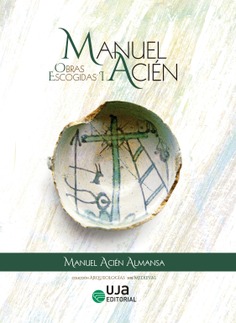
Cómo citar este libro
Acién Almansa, Manuel (2020). Manuel Acién. Obras escogidas I. Universidad de Jaén. UJA Editorial
Comprar en librerías
Manuel Acién. Obras escogidas I
Manuel Acién Almansa, Vicente Salvatierra Cuenca, Mª Antonia Martínez Nuñez, Manuel Acién Almansa
En este primer volumen de las obras escogidas de Manuel Acién se han incluido una nueva edición (la tercera) del libro Entre el feudalismo y el Islám. Umar ibn Hafsun en los historiadores, en las fuentes y en la historia, y la versión en inglés del artículo Sobre el papel de la ideología en la caracterización de las formaciones sociales. La formación social islámica.
El objetivo del primer texto, según el propio autor, era "la explicación, o propuesta de explicación, de la figura de Ibn Hafsun en el contexto de la fitna. No se trataba de una biografía del personaje, ni una historia de la fitna; en consecuencia, mucho más alejado del objetivo del libro estaba el construir una historia del Emirato". Pero el texto va mucho más allá de esos modestos objetivos. Como expone Eduardo Manzano en su introducción a este volumen, Manuel Acién enfocó el tema desde un ángulo tan novedoso, que revolucionó las concepciones que se tenían sobre el Emirato. Este es un periodo caracterizado, según el relato de las fuentes árabes, por constantes revueltas de todo tipo que convertían su historia en un relato tedioso e incomprensible. Siendo igualmente incomprensible cómo pudo emerger de ahí el brillante periodo del califato de Córdoba. Hasta que la explicación de Manuel Acién vino a iluminar este oscuro momento de la historia de Al-Andalus al leer dicho periodo como una época de transición, en la que la formación social islámica -sin que el término tenga un significado religioso-, se afirmó frente a las formaciones sociales feudalizantes y tribales, emergiendo la sociedad andalusí.
El segundo texto es el complemento imprescindible del primero. En él, M. Acién define y explica la ideología islámica -de nuevo sin ningún significado religioso-, contraponiéndola a la feudal y capitalista. Como se explica en la introducción, estaba previsto publicar esta versión en inglés en un volumen que finalmente no vio la luz, por eso los editores han optado por incluirla aquí. La versión en castellano se encuentra en el II volumen de estas Obras Escogidas.
___________________
This first volume of the Selected Works of Manuel Acién includes a new edition (the third) of the book "Between Feudalism and Islam. Umar ibn Hafsun within the historians, the sources and history", and also the article "On the Role of Ideology in the Characterization of Social Formations. The Islamic Social Formation".
The objective of the first text, according to the author himself, was "the explanation, or proposed explanation, of the figure of Ibn Hafsun within the context of fitna. It was not a biography of the character, nor was it a history of fitna; consequently, much further from the objective of the book was to construct a history of the Emirate". But the text goes far beyond these modest objectives. As Eduardo Manzano explains in his introduction to this volume, Manuel Acién approached the subject from such an original point of view that he shaked up the conceptions that were held about the Emirate. This is a period characterized, according to the account of the Arab sources, by constant revolts of all kinds that turned its history into a tedious and incomprehensible story. It is equally incomprehensible how the brilliant period of the Caliphate of Córdoba could emerge from there. Until Manuel Acién's explanation came to illuminate this dark time in the history of Al-Andalus by reading the said period as a time of transition, in which the Islamic social formation -without the term having a religious meaning-, became established before the feudalizing and tribal social formations, emerging so the Andalusian society.
The second text is the essential complement to the first. In it, M. Acién defines and explains the Islamic ideology - again without any religious meaning -, comparing it with the feudal and capitalist ideology. As explained in the introduction, it was planned to publish this article in a volume that finally did not see the light, so the editors have decided to include it here. The Spanish version can be found in Volume II of these Selected Works.
- Autor/a
- Manuel Acién Almansa
- Editor/a
- Vicente Salvatierra Cuenca
- Editor/a
- Mª Antonia Martínez Nuñez
- Escritor
- Manuel Acién Almansa
- Colección
- Arqueologías. Serie Medieval
- Idioma
- Castellano
- Editorial
- UJA Editorial
- EAN
- 9788491593997
- ISBN
- 978-84-9159-399-7
- Páginas
- 232
- Edición
- 1
- Fecha publicación
- 18-03-2021
- Número en la colección
- 3
- DRM
- DRM
Sobre Manuel Acién Almansa (Autor/a)
Sobre Vicente Salvatierra Cuenca (Editor/a)
Sobre Mª Antonia Martínez Nuñez (Editor/a)
Sobre Manuel Acién Almansa (Escritor)
Reseñas
Mainake, ISSN 0212-078X, Nº. 39, 2021. Irene Montilla Torres
Vicente Salvatierra Cuenca, director de la revista Revista de Arqueología y Territorio Medieval
Contenidos
Introducción. Eduardo Manzano
Entre el Feudalismo y el Islám. ‘Umar Ibn Ḥafṣūn en los historiadores,
en las fuentes y en la historia
On the Role of Ideology in the Characterization of Social Formations. The Islamic Social Formation
Bibliografía general de Manuel Acién
Otras actividades científicas
Libros relacionados

Trabajando en Casa: la Producción de Hilo y Tejido en el Espacio Doméstico de Al-Andalus (ss. IX-XIII)
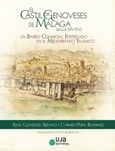
El Castil de Genoveses de Málaga (siglos XIV-XV)
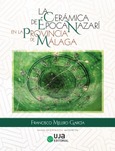
La Cerámica de época Nazarí en la provincia de Málaga
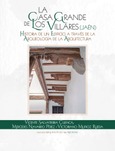
La Casa Grande de los Villares (Jaén). Historia de un edificio a través de la arqueología de la arquitectura
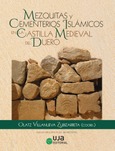
Mezquitas y Cementerios Islámicos en la Castilla Medieval del Duero
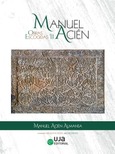
Manuel Acién. Obras escogidas II
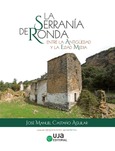
La Serranía de Ronda entre la Antigüedad y la Edad Media
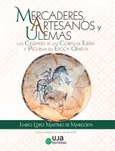
Mercaderes, artesanos y ulemas





